This is my first time using Google's Vertex AI Pipelines. I checked this codelab as well as this post and this post, on top of some links derived from the official documentation. I decided to put all that knowledge to work, in some toy example: I was planning to build a pipeline consisting of 2 components: "get-data" (which reads some .csv file stored in Cloud Storage) and "report-data" (which basically returns the shape of the .csv data read in the previous component). Furthermore, I was cautious to include some suggestions provided in this forum. The code I currently have, goes as follows:
from kfp.v2 import compiler
from kfp.v2.dsl import pipeline, component, Dataset, Input, Output
from google.cloud import aiplatform
# Components section
@component(
packages_to_install=[
"google-cloud-storage",
"pandas",
],
base_image="python:3.9",
output_component_file="get_data.yaml"
)
def get_data(
bucket: str,
url: str,
dataset: Output[Dataset],
):
import pandas as pd
from google.cloud import storage
storage_client = storage.Client("my-project")
bucket = storage_client.get_bucket(bucket)
blob = bucket.blob(url)
blob.download_to_filename('localdf.csv')
# path = "gs://my-bucket/program_grouping_data.zip"
df = pd.read_csv('localdf.csv', compression='zip')
df['new_skills'] = df['new_skills'].apply(ast.literal_eval)
df.to_csv(dataset.path + ".csv" , index=False, encoding='utf-8-sig')
@component(
packages_to_install=["pandas"],
base_image="python:3.9",
output_component_file="report_data.yaml"
)
def report_data(
inputd: Input[Dataset],
):
import pandas as pd
df = pd.read_csv(inputd.path)
return df.shape
# Pipeline section
@pipeline(
# Default pipeline root. You can override it when submitting the pipeline.
pipeline_root=PIPELINE_ROOT,
# A name for the pipeline.
name="my-pipeline",
)
def my_pipeline(
url: str = "test_vertex/pipeline_root/program_grouping_data.zip",
bucket: str = "my-bucket"
):
dataset_task = get_data(bucket, url)
dimensions = report_data(
dataset_task.output
)
# Compilation section
compiler.Compiler().compile(
pipeline_func=my_pipeline, package_path="pipeline_job.json"
)
# Running and submitting job
from datetime import datetime
TIMESTAMP = datetime.now().strftime("%Y%m%d%H%M%S")
run1 = aiplatform.PipelineJob(
display_name="my-pipeline",
template_path="pipeline_job.json",
job_id="mlmd-pipeline-small-{0}".format(TIMESTAMP),
parameter_values={"url": "test_vertex/pipeline_root/program_grouping_data.zip", "bucket": "my-bucket"},
enable_caching=True,
)
run1.submit()
I was happy to see that the pipeline compiled with no errors, and managed to submit the job. However "my happiness lasted short", as when I went to Vertex AI Pipelines, I stumbled upon some "error", which goes like:
The DAG failed because some tasks failed. The failed tasks are: [get-data].; Job (project_id = my-project, job_id = 4290278978419163136) is failed due to the above error.; Failed to handle the job: {project_number = xxxxxxxx, job_id = 4290278978419163136}
I did not find any related info on the web, neither could I find any log or something similar, and I feel a bit overwhelmed that the solution to this (seemingly) easy example, is still eluding me.
Quite obviously, I don't what or where I am mistaking. Any suggestion?

